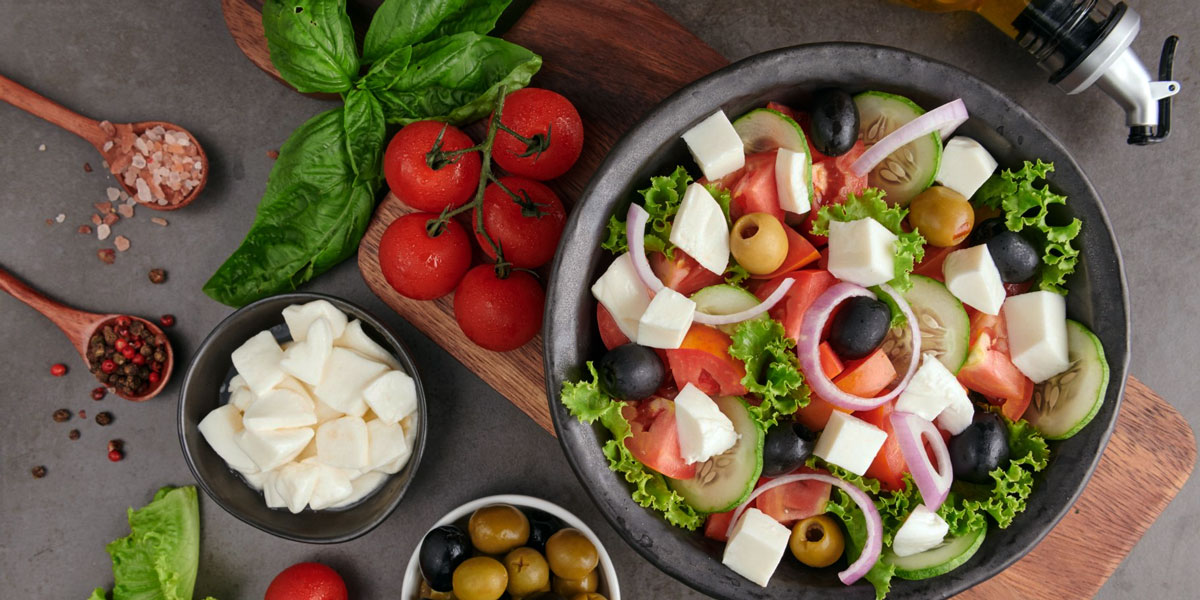
The Mediterranean diet is praised for more than just its delicious food — it’s a way of eating that blends pleasure, simplicity, and long-term health. Its global popularity is no coincidence: people are drawn to its fresh ingredients, moderate portions, and proven impact on heart health and longevity. Unlike restrictive diets, it allows variety and flexibility while encouraging mindful eating. This is not a short-term trend, but a cultural heritage passed down through generations.
A Short History of the Mediterranean Diet
The origins of the Mediterranean diet can be traced to the traditional eating habits of southern European countries, especially Italy and Greece. In the 1950s, American scientist Ancel Keys studied the notably low rates of heart disease in these regions and linked them to diet and lifestyle. His research sparked international interest and led to decades of nutritional studies confirming the benefits of this natural, plant-forward way of eating.
Historically, Mediterranean people relied on local harvests, simple cooking techniques, and minimal animal protein — shaped by necessity, agriculture, and climate. Meals were seasonal, affordable, and centered on family life. There was no concept of dieting — just eating well with what the land offered.
Even today, many villages maintain similar practices, showing how tradition supports health. Though regional variations exist, the core values — balance, freshness, and variety — remain consistent. In recognition of its cultural importance, UNESCO added the Mediterranean diet to its Intangible Cultural Heritage list in 2010.
Core Ingredients and Cooking Methods
At the heart of this diet is a strong emphasis on unprocessed, whole foods. Vegetables and fruits are consumed daily, often raw, grilled, or lightly sautéed. Whole grains and legumes offer complex carbohydrates and fiber, while olive oil is used generously as the primary fat. Typical core ingredients include:
- Leafy greens, tomatoes, zucchini, eggplant, and peppers
- Beans, lentils, and chickpeas
- Whole grains like barley, bulgur, and whole wheat bread
- Olive oil, herbs, lemon, and garlic for flavor
- Fish and seafood several times a week
- Moderate amounts of yogurt and cheese
- Small portions of eggs and poultry
- Red meat rarely, usually for holidays or celebrations
Preparation tends to be simple: ingredients are respected in their natural form and rarely overcooked. Instead of heavy sauces, dishes rely on herbs like oregano, thyme, and basil. Meals are often cooked slowly and enjoyed slowly.
Bread, when eaten, is wholegrain and served plain — not slathered in butter. Even wine has its place, sipped in moderation and always with food. This approach to cooking values quality over complexity, and freshness over excess.

Other Key Lifestyle Principles
Beyond food, the Mediterranean diet is a way of living that supports balance and longevity. Physical activity is woven into everyday life — through walking, gardening, or housework. Meals are not rushed but enjoyed with family or friends, reinforcing the social side of eating. Portion sizes are moderate, and emotional eating is rare.
This lifestyle respects both the food and the act of eating. Local and seasonal ingredients are preferred over imported or packaged alternatives. Cooking at home is the norm, and fast food is uncommon. Even well-known Italian athletes like Federica Pellegrini, Carolina Kostner and Bebe Vio — widely followed by fans and regularly featured by bookmakers non AAMS — have openly embraced the principles of Mediterranean nutrition in their daily routines.
What matters most is not strict rules, but consistency, simplicity, and pleasure. Some guiding principles include:
- Sourcing food locally and seasonally
- Avoiding ultra-processed snacks and ready meals
- Cooking at home with basic, wholesome ingredients
- Making time to share meals socially
- Moving naturally throughout the day
In this holistic model, eating is not isolated from life — it’s part of it, closely tied to tradition, culture, and health.
The Mediterranean diet supports both body and mind. It helps regulate blood pressure, lower cholesterol, and prevent chronic illnesses like diabetes and heart disease. Thanks to its anti-inflammatory ingredients and healthy fats, it also supports digestion, weight balance, and brain health.
Importantly, it promotes a positive relationship with food — free of guilt, full of flavor. In a world of extremes, the Mediterranean way offers something rare: sustainable, enjoyable, proven nourishment.



